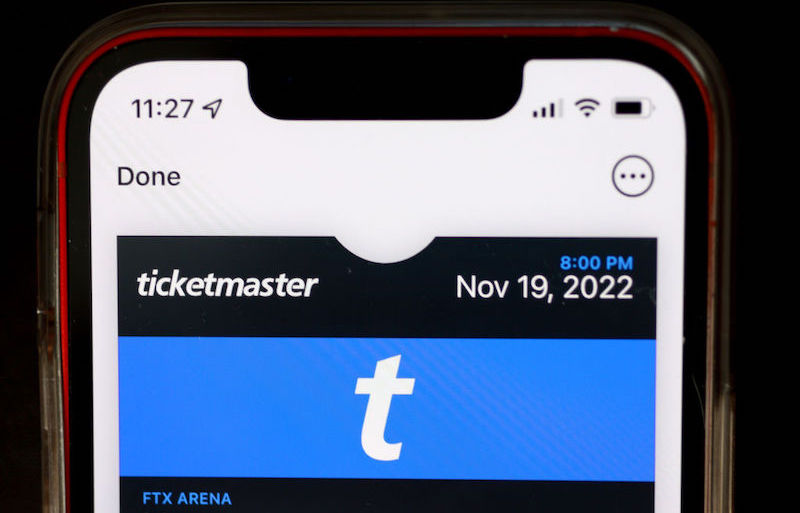
The Taylor Swift Eras Tour ticket controversy prompts lawmaker action.
When Taylor Swift announced her upcoming Eras Tour, fans knew they would have to be vigilant to score tickets. But the way Swift’s exclusive ticketing partner, Ticketmaster, handled the demand left fans furious. Many fans waited for hours to purchase presale tickets, battling glitches and bots, only to come up emptyhanded. Some Swifties have filed complaints and lawsuits against the company.
They have some choice words for Ticketmaster: “Look What You Made Us Do.”
After merging with Live Nation in 2010, Ticketmaster has become a go-to purveyor of tickets for large stadium shows and blockbuster tours. But critics, including U.S. Federal Trade Commission (FTC) chair Lina Khan, say that large companies such as Ticketmaster are “too big to care.” Fans allege a failure to prevent bots from snapping up tickets, a series of glitches that led to site breakdowns and cancellations, and confusing fees and pricing.
In addition to fan-initiated legal actions, Ticketmaster is facing probes by federal and state lawmakers after the company failed to handle the “unprecedented demand” for the Eras Tour presale. Attorneys general in states such as Pennsylvania and Tennessee have launched investigations. A U.S. Senate antitrust committee has announced that it would hold a hearing on competition in the ticketing industry. And the U.S. House Committee on Energy & Commerce sent a letter to the CEO of Ticketmaster and Live Nation expressing concerns and requesting a briefing on its ticketing practices.
But the issues that consumers and lawmakers have with the ticketing industry do not start and end with Ticketmaster, according to concert industry experts. In addition to alleging monopolistic conduct and lack of quality service from Ticketmaster, lawmakers and consumers have accused ticketing companies generally of charging inflated fees on top of ticket prices, obscuring those fees from customers, and masking how many tickets are actually available to fans.
To mitigate these concerns, legislators for years have been exploring ways to make ticketing fairer and more transparent by all major ticket sellers.
Early efforts resulted in the Better Online Ticket Sales Act of 2016—or the BOTS Act, for short. The BOTS Act targets bots, or programs used by scalpers to snap up massive amounts of tickets at once. These programs autofill false customer information and solve CAPTCHA prompts otherwise designed to deter robot purchases. Through the Act, lawmakers sought to prohibit the use of these bots and the sale of any tickets obtained by those means, claiming that bots force consumers to buy marked-up tickets on the secondary market. But the FTC, which is charged with enforcing the BOTS Act, has so far only brought a single enforcement under the Act.
The BOTS Act and a patchwork of state consumer protection laws currently serve as the main mechanisms for regulating the ticketing industry in the United States. Some states are more aggressive than others, and the laws are far from uniform. For example, New York requires full, upfront disclosure of ticket fees and services charges. Meanwhile, Michigan recently loosened one of its laws that forbade residents from reselling tickets.
But lawmakers everywhere seem to acknowledge that existing mechanisms are not enough. In the years since the BOTS Act was passed, several federal agencies and members of Congress have put forward other ways to crack down on imbalances between consumers and ticket sales companies.
In 2018, the U.S. Government Accountability Office (GAO) undertook a study to identify consumer protection issues in the ticketing industry.
In 2019, the Energy & Commerce Committee investigated the industry’s unfair practices. The chair of the committee and two other lawmakers then reintroduced the Better Oversight of Secondary Sales and Accountability in Concert Ticketing Act of 2019, or BOSS Act, which lawmakers initially proposed after Bruce Springsteen had a similar showdown with Ticketmaster.
More recently, the FTC hosted a workshop to explore possible solutions to online ticketing issues in 2019 and published a recap in 2020.
As for how regulators might crack down on ticketing companies in the future, a look into the past—the GAO study, the proposed BOSS Act, and the FTC workshop— may illustrate likely paths forward. Previous efforts have focused on primary and secondary market problems.
Primary market issues concern the ticket companies themselves. One such issue is pricing transparency. The 2018 GAO study found that stakeholders generally supported clear, upfront disclosure of ticket fees, although opinions varied on “all-in” pricing or line-item fee reporting. The BOSS Act would have required sellers to disclose all fees upfront and would prohibit primary ticket sellers from setting ticket resale price floors or preventing purchasers from reselling.
The FTC workshop identified holdbacks as another issue plaguing consumers who struggle to find tickets at a fair price. Holdbacks occur when sellers reserve tickets for future sales or people affiliated with the venue or artist. The BOSS Act would have addressed holdbacks by requiring primary sellers to disclose the total number of tickets available to the public before tickets go on sale.
Secondary market issues concern resellers. One issue is that resellers’ affiliation is often unclear to potential buyers. For example, GAO condemned “white-label” resale sites, which are designed to confuse customers into thinking they are affiliated with the artist or the venue. These white-label sites often pay to appear first in search results. Meanwhile, they charge higher fees than official sites. The BOSS Act provided that secondary sellers would need consent before representing themselves as affiliated with an artist or venue.
Another transparency issue arises when actors affiliated with the primary seller, venue, or artist enter the secondary market. The BOSS Act would have required disclosure of the relationship in this circumstance, as well as disclosure of the face value of the ticket and time of original purchase.
The FTC workshop also illuminated issues with bots even after the passage of the BOTS Act—and these concerns reemerged again in the aftermath of the Taylor Swift ticketing fiasco. Lawmakers continue to urge the FTC to pick up enforcement efforts.
In addition to investigating Ticketmaster’s potential monopolistic power, lawmakers will likely consider other regulations targeting primary and secondary market issues as they seek to craft a solution for the industry at large. It is evident that many lawmakers and regulators believe a solution is needed to fix the “broken” ticket market.



